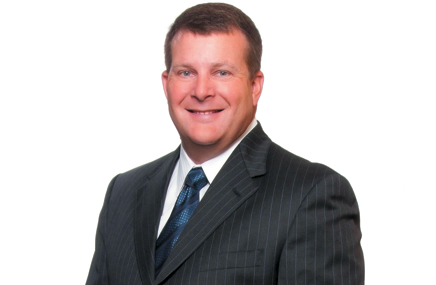Mark Iwicki
President and CEO, Sunovion Pharmaceuticals, Inc.
2007 –2010, EVP, chief commerical officer, Sepracor
1998 – 2007, VP and business unit head, various franchises, Novartis
“It’s the most important product and business we have for the next couple of years,” says Iwicki, who was named president and CEO of Sunovion Pharmeceuticals in late June. “From a revenue standpoint, the entire antipsychotic category is about a $16 billion market.”
Latuda was developed at an R&D facility established in Fort Lee, NJ, about eight years ago by Sunovion’s Japanese parent Dainippon Sumitomo Pharma Co. (DSP). It won approval last October and launched in February. DSP acquired Sunovion’s predecessor Sepracor for $2.6 billion in 2009, a move that afforded it the infrastructure to take Latuda to market and that also expanded its global footprint.
“DSP president and CEO Masayo Tada feels global expansion is critical,” Iwicki notes. “The first major initiative was to develop and launch Latuda. It’s a main reason DSP acquired us—we’re a really strong CNS company with good R&D and strong marketing and sales teams.”
Latuda enters a crowded market (about nine antipsychotic products total), dominated by AstraZeneca’s Seroquel, Eli Lilly’s Zyprexa and Bristol-Myers Squibb’s Abilify, according to IMS Health’s “Top 20 Global Products 2010.” Zyprexa and Seroquel both face imminent patent expiration. Merck and Novartis both recently launched products—Saphris in late 2009 and Fanapt in January 2010. Tracked against those new entrants, Iwicki says Latuda is doing well.
Latuda marketing mostly targets psychiatrists, who Iwicki says make themselves more available than many doctors in other categories. A significant portion of the marketing plan is focused on meetings and events, including webinars, teleconferences and symposiums with thought leaders who worked on Latuda. Investment in patient advocacy groups, such as the National Alliance on Mental Illness, has also proven beneficial.
“Psychiatrists are very thoughtful and careful,” Iwicki explains. “They’ve given us the time and have been very willing to attend education sessions.”
Sleep aid Lunesta has been Sunovion’s biggest product—with a TRx market share of about 7.2% (rolling 52 weeks) and 2010 revenue of $614 million. It’s losing ground to generic competition, but Iwicki says the sales team still makes progress and Sunovion will “continue to work hard on” selling it.
Though the company is still mainly focused on CNS and respiratory products, Iwicki says there are plans to get into oncology as well. The pipeline includes Stedesa, an adjunct treatment for epilepsy, and an aerosol formulation of Omnaris (for allergic rhinitis). NDAs have been submitted for both, and Iwicki hopes to launch the new Omnaris formulation in 2012 and move forward on Stedesa over the next two years.
Nearly 500 people were hired last year, bringing US headcount to about 2,500.
“Many people don’t realize Sepracor was a fully integrated pharma company,” Iwicki says. “Not many companies our size have a robust discovery group and a strong commercial group.
When not running Suno-vion, the Harrisburg, PA native coaches soccer, hockey, lacrosse and baseball and spends time with his four kids, ages seven to 16. “It’s important to help shape kids’ lives,” he says. “I go from a suit to a sweat suit in a matter of minutes.” He feels “super fortunate” to have joined Merck as a sales rep out of college and credits his uncle, an Upjohn veteran, for helping steer him into the business.
“I got the chance to join Merck and never looked back,” Iwicki says. “I love the industry—you can do good things for patients and your communities and you can also do well for yourself and your company.”
From the October 01, 2011 Issue of MM+M - Medical Marketing and Media







